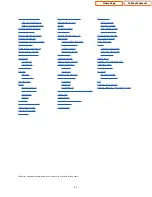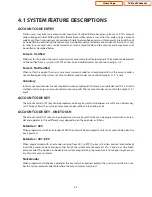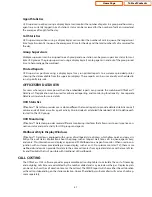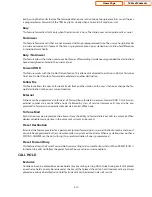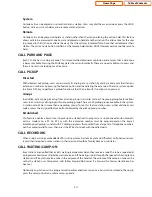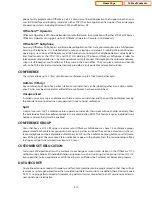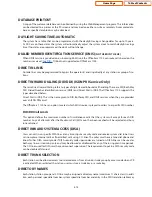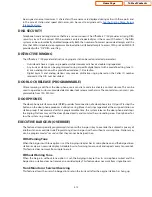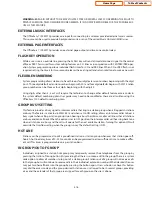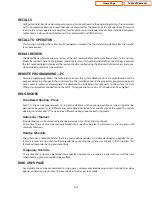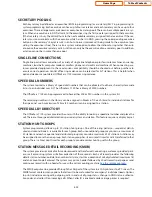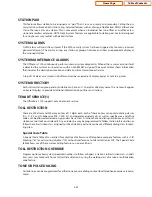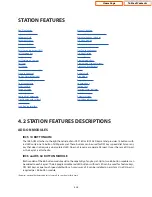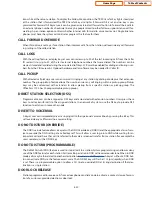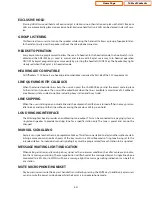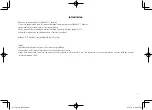
WARNING:
BARGE-IN WITHOUT TONE MAY VIOLATE STATE OR FEDERAL LAWS CONCERNING THE RIGHT TO
PRIVACY. SAMSUNG TELECOMMUNICATIONS AMERICA IS IN NO WAY RESPONSIBLE FOR THE POSSIBLE MIS-
USE OF THIS FEATURE.
EXTERNAL MUSIC INTERFACES
The OfficeServ 7100 MP10 provides one input for connecting to customer provided external music sources.
This source can be used to provide background music, or any of the varied Music On Hold (MOH) uses.
EXTERNAL PAGE INTERFACES
The OfficeServ 7100 MP10 provides one external page output and two zone control relays.
FLASH KEY OPERATION
While a user is on an outside line, pressing the FLASH key will send a timed disconnect signal to the central
office or PBX. This is used for custom calling features on C.O. lines or in conjunction with CENTREX/PBX oper-
ation. System programming allows individual flash times for C.O. and PBX lines. When C.O. or PBX flash is not
required, setting the timers for two seconds releases the existing call and returns dial tone to make a new call.
FLEXIBLE NUMBERING
System programming allows stations to have three or four digit extension numbers beginning with the digit
2 or 3. Three digit default extension numbers begin with 201 and four digit defaults begin with 2001. Station
group numbers can be three or four digits beginning with the digit 5.
Using digits other than 2, 3 or 5 will require the technician to change other default feature access codes in
the system default numbering plan. User guides may need to be modified as these are all written using the
OfficeServ 7100 default numbering plan.
GROUP BUSY SETTING
This feature provides a busy signal to intercom callers that ring to a station group when all logged-in stations
are busy. The feature is activated in MMC 601 and when set to ON setting, allows an intercom caller to hear a
busy signal when calling a station group. Upon hearing a busy the intercom caller will know that all stations
are busy and can call back.When this option is set to OFF position the intercom caller will hear ring-back tone
when all stations are busy and the call will queue for the next available station. Turning this option ON will
override the Overflow setting when the group is busy. The default setting is OFF.
HOT LINE
Stations can be programmed to call a pre-defined station or station group whenever that station goes off-
hook. A hot line delay timer of 0–250 seconds can be programmed to allow sufficient time to make a differ-
ent call. This timer is programmable on a per station basis.
IN GROUP/OUT OF GROUP
Individuals assigned to a station hunt group may temporarily remove their telephones from the group by
pressing the In/Out of Group button (IG) providing that there is someone still in the group. There is a system
wide option to allow all members to log out of a station group. Stations out of a group will not receive calls
to that group but will continue to receive calls to their individual extension numbers. When desired, the user
may put him/herself back into the group by pressing the button again. Users who do not have this button
may dial the access code and the group desired. A station user is allowed to be in several groups, providing
a key and the extender of that group are assigned for each group on the user’s phone.
4.16
Home Page
Table of Contents

